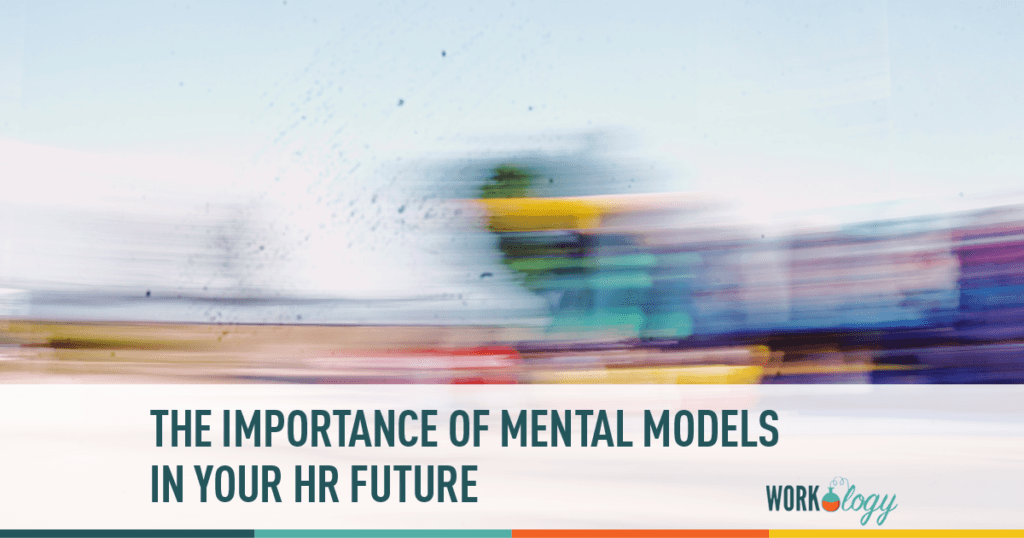When looking ahead and trying to anticipate as an HR futurist there are a number of steps that must be considered. It is important to understand your own organization and in order to understand your organization you must have an awareness of the mental models that rule the thinking.
Mental models
Peter Senge, in his book The Fifth Discipline, defines mental models as “deeply ingrained assumptions, generalizations, or even pictures or images that influence how we understand the world and how we take actions.” As individuals have our own set of mental models about the world and people around us. It is our comparison point. Unfortunately when the world changes at a rapid pace and if we often do not reexamine our mental models and thus we may soon find ourselves being non-adaptive. Senge says “Mental models of what can or cannot be done in different management settings are no less deeply entrenched.” These mental models can be simple generalizations, such as “Generation Y’s are not willing to pay their dues and are not loyal” or they can be much more complex.
Stopping the action
According to Senge “New insights fail to get put into practice because they conflict with deeply held internal images of how the world works, images that limit us to familiar ways of thinking and acting.” That may be a big problem for the HR professional trying to practice being a practical futurist. One of the major roles of the HR futurist is to get the organization to consider different futures for the company, whether that is a different product, a different market, a new technology, a different skill set required or even an very different type of employee the company will need to hire.
Look at the current model
In order to suggest alternative futures you have to examine and understand the current mental models or points of view the organization holds. Without this understanding then presentations of alternative futures will most likely fall on deaf ears. Perhaps one of the alternative futures you may look at will require your company to change to a totally distributed model of employment, with some work being done by contractors in other countries or telecommuting employees rather than a traditional onsite labor force. If the current mental model is that employees have to be managed by looking at headcount in a cubical farm then this alternative future will not be well accepted.
The alternative future
What would happen if your building burning down? How would the company survive? One possible way would be to have as much work off-loaded to outsourced solutions and to rapidly set up employees to be able to work out their homes. That could be accomplished quickly if the company was prepared and had a plan in place to deal with this undesired future. You could even prepare for such a future now by setting up a telecommuting program for existing workers preparing them for disasters. But you will not get this accepted if the mental model of “headcount attendance” is not changed. And you cannot change it if you don’t know it exists.
How to handle
The best way to get a handle on what the current mental models is to first sit down and examine your own mental models about various aspects of your business. How do you feel about employees, work process, management, opportunities, abilities and the chances of getting things done? Then take a look at the mental models of the company. Without this examination and understanding you will never get anything accomplished. As Senge says “The inertia of deeply entrenched mental models can overwhelm even the best systemic insight.”








